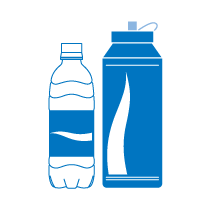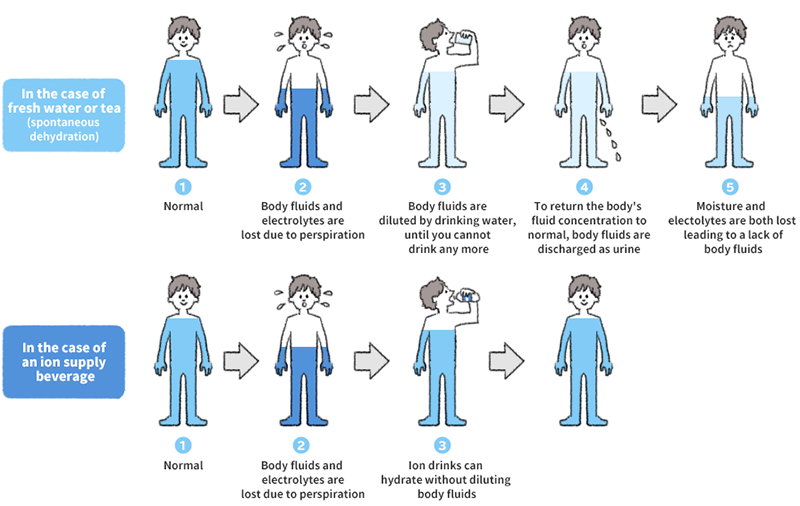How to replace lost fluids
How much should you drink when dehydrated?
It's important to replace fluids at a rate that ensures that your body weight is not reduced by more than 2% through sweat loss.
The ideal method is to weigh yourself immediately before and after exercising, but if you cannot do that, it is important to ensure that you will have access to as much drink as you need when you get thirsty.
Many studies have clearly shown that in this way, you will replace just the right amount of fluid.
- 1Weighing yourself immediately before and after exercise is ideal
- 2Keep body weight reduction at 2% or less
- 3Replace the right amount of fluid by ensuring that you will have access to as much drink as you need when you get thirsty.
Source: Japan Sport Association, "Guide to Preventing Heat Stroke During Sports Activities"
Key points for effective rehydration

There are 4 points to remember when it comes to rehydrating during exercise.
- 1 Drink frequently (2-4 times an hour, 200-250ml each time)
- 2 Keep your drink slightly cool (5-15℃)
- 3Sodium concentration (40-80 mg / 100 ml)
- *Salt concentration 0.1-0.2%
- 4Sugar concentration (around 4-8%)
- *Should contain glucose + fructose (or sugar)
- *Applicable for when exercising for 1 hour or more
The dangers of rehydrating by drinking water alone
If you only drink water, you cannot restore the fluids and electrolytes (ions) lost through your sweat, causing an imbalance in water and ions in your bodily fluids; your bodily fluids will become diluted. Your body will then try to prevent the fluids from thinning by causing you to stop feeling thirsty, excreting excessive amounts of water in the form of urine. This makes it impossible for your bodily fluids to be restored properly. This phenomenon is called spontaneous dehydration.










